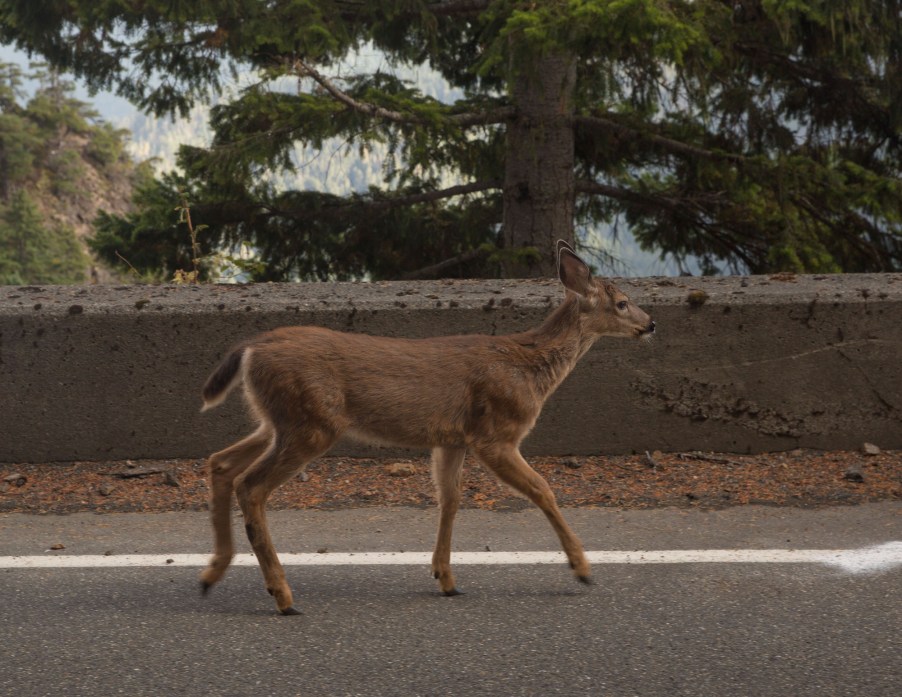
What Do You Need to Do When You Hit a Deer?
Hitting a deer is one of the most common accidents you may experience while driving. Since these animals often weigh between 155 to 200 pounds, your car will likely be left with at least some front-end damage.
When you’re driving through an area deer inhabit, be extra attentive. You also can’t trust deer gadgets to keep yourself safe, as many of these products don’t work. Even if you’re careful, deer are unpredictable, and collisions are sometimes unavoidable. Here’s how you should handle them.
Here’s how much you might pay for deer-related auto damage

Erie Insurance recommends hitting a deer if it’s too late to stop instead of swerving away. You might save the deer’s life by swerving, but you’ll endanger other cars on the road in the process. Swerving could also cause you to lose control of your vehicle, especially if the roads are slick.
According to Smart Motors, hitting a deer will almost always damage the hood and grille of your car. This type of collision can also damage your car’s radiator and air conditioning system.
Some of the most costly repairs involve replacing expensive safety sensors and repairing structural damage. If your car isn’t deemed a total loss, you might need up to $6,000 to cover the damages.
What you need to do after hitting a deer
Immediately after the impact, find a safe place to pull over on the road. If you or someone else in your vehicle is severely injured, call 911 immediately.
Otherwise, you can turn on your hazard lights and exit the vehicle. Keep yourself at a safe distance from the downed deer, even if it looks deceased. While deer aren’t typically aggressive, they can still harm you as they attempt to flee the situation.
Walk around the entire perimeter of your car as you check for damage, and don’t forget to take photos. Driving your vehicle back home is probably safe if there is no visible damage.
You should always make a service appointment for your car after the incident. A professional mechanic can perform a more accurate assessment. Call roadside assistance if there’s any doubt at the scene of the accident.
If passengers or other drivers were injured during the incident, you must file a police report. Even if you were the only one involved and don’t require immediate medical treatment, a police report is helpful for insurance claims.
You should also file a police report if the incident caused property damage. After hitting a deer, most drivers focus on stopping their vehicles as quickly as possible. Since their full attention isn’t on the road, they may hit telephone poles or guardrails.
If the deer dies on impact, leaving its body on the road poses a danger for other drivers. Don’t drag it away from the road by yourself. Alert your local wildlife service or game commissioner of the situation so the deer can be removed as soon as possible.
Does auto insurance cover deer-related accidents?
A basic car insurance policy will cover property damage and bodily injury, but usually only for accidents involving other vehicles. You’ll need an optional comprehensive policy for damage related to hitting animals. This policy can also help you pay for damage caused by severe weather, vandalism, or theft.
You’ll choose a set deductible for your policy, typically between $500-$1000, but prices can vary. After you’ve paid your deductible for the repairs, your insurance will cover the rest. In many cases, comprehensive insurance will also pay out the car’s actual cash value if the vehicle is totaled.
Of course, that’s only if you file a timely insurance claim, with police reports and detailed photos of damage. This will help you get as much reimbursement as possible.


